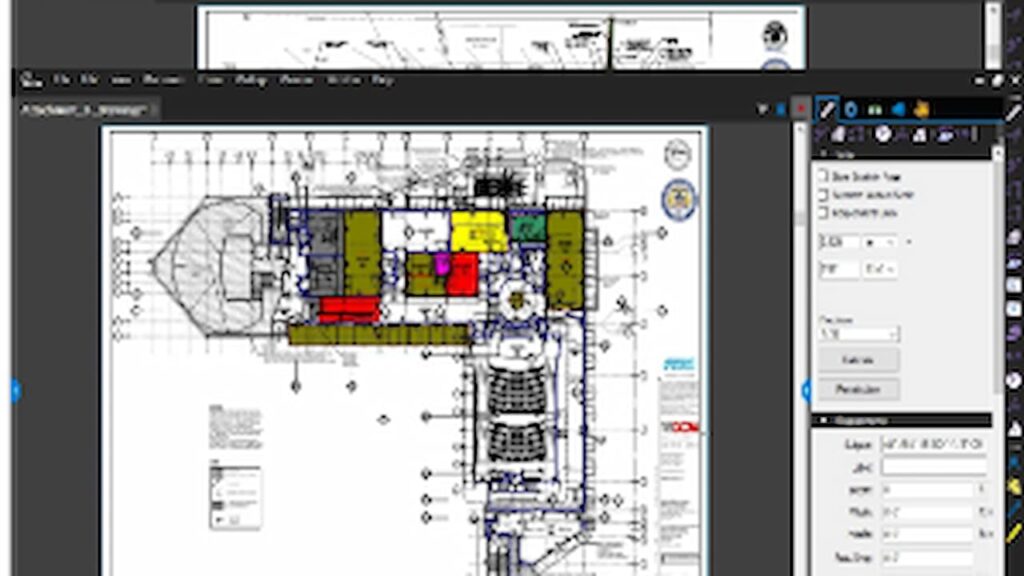Building engineering is a complicated and multidisciplinary field that involves designing, building, and maintaining buildings and other structures. This field includes a wide range of technical fields, such as structural, mechanical, electrical, and plumbing engineering, as well as architecture and construction management. Building engineers are in charge of making sure that buildings are safe, functional, and use energy efficiently. They are also a key part of making communities that are sustainable and resilient. In this essay, we will explore the importance of building engineering and the ways in which it impacts our daily lives.
1 – Do material take-off and estimation for owners by Jack_estimator
With extensive and diverse experience in the field of estimating, as a senior estimator for a large construction firm in Kansas City, I provide accurate and detailed material take offs for various construction industries, including both residential and commercial trades. Whether you are an owner seeking precise takeoff documentation to order materials, a contractor looking to cross-check bids from sub-contractors, or an individual applying for a loan, our take-off services can cater to your needs. We specialize in providing take-off services for a wide range of categories, including framing using wood studs, joists, sheathing, and blockings, concrete using rebars and formwork, steel with metal framing, red steel, and light gauge stud, thermal roofing, insulation, and siding, openings such as doors, hardware, windows, and storefronts, finishes including drywall, painting, flooring, and ACT, appliances and accessories, finish carpentry, HVAC/plumbing/electrical, and earthwork/utilities/site work.
2 – Do material take off and cost estimation for all construction trades by Asad7596
As a senior quantity surveyor with a wealth of experience in the estimation field, I specialize in providing comprehensive material take-offs and accurate cost estimates for a variety of construction trades, including architectural, structural, and MEP. My expertise extends to various domains, such as new construction and renovation of residential, commercial, and industrial projects. I am also proficient in demolition, masonry, concrete, and rebar, including bar bending schedules and formwork. This list is not exhaustive, and I am equipped to handle a broad range of projects in the construction industry.
3 – Do material take-off, construction cost estimation for all types of Buildings by Rehantariq11
I specialize in providing construction cost estimation and quantities take-off services for both residential and commercial projects, ensuring a high level of accuracy of 97%. I place a strong emphasis on timely delivery of work and am happy to provide a service proposal tailored to your specific project requirements.
I am well-versed in all trades related to construction and can provide estimates and material take-offs for site construction, concrete masonry, metals, wood and plastics, thermal and moisture protection, doors and windows, finishes and specialties, equipment furnishings, special construction, and conveying systems including mechanical (such as plumbing and HVAC) and electrical. If you have any project for which you need an estimation, please let me know and I will be happy to assist.
4 – Do material take off and construction estimation for contractors by Jack_estimator
As a civil engineer working for CJR Construction Group in Kansas City, I specialize in precise take-off, estimation, and change order management. My experience and skills have allowed me to contribute to a variety of high-profile projects, including the tenant spaces at KCI Airport. Through my collaborations with reputable firms such as JE Dunn, Centric, Turner, Paric Construction, and Clarkson, I have become proficient in utilizing advanced tools such as PlanSwift and Bluebeam take-off. Whether you require pricing estimates for labor and materials in Kansas or anywhere else in the United States, I am well-equipped to handle the task. On a personal note, I am also an avid soccer enthusiast.
5 – Do cost estimation and material take off for all construction trades by Danish_madni
As a seasoned quantity estimator and material take-off specialist, I offer the following services to assist you:
- Material take-off for a variety of civil activities, including demolition, masonry, drywall, steel, concrete, and many others.
- Expertise in all CSI Divisions, covering a range of activities such as site work, demolition, landscaping, soil erosion and control, concrete work, masonry work, metals, wood, plastic composite, roofing and insulation, walls, openings, finishes, specialties, equipment, furnishes, fire protection, HVAC, plumbing, electrical, and earthwork.
In addition to these services, I also provide cost estimation for civil projects located in the United States, United Kingdom, Australia, or Canada. With my comprehensive knowledge and experience, I am confident in my ability to help you achieve your construction goals.
FAQs
What is the difference between civil engineering and building engineering?
Civil engineering and building engineering are two closely related fields within the broader domain of engineering, but there are some differences between the two.
Civil engineering is a branch of engineering that deals with the design, construction, and maintenance of the built environment, including structures such as buildings, roads, bridges, tunnels, and water supply and sewage systems. Civil engineers use their expertise in physics, mathematics, and materials science to design and construct these structures with a focus on safety, sustainability, and functionality. Civil engineering projects typically involve large-scale infrastructure and public works, and civil engineers often work on projects that require interaction with government agencies and other stakeholders.
Building engineering, on the other hand, is a subset of civil engineering that focuses specifically on the design, construction, and maintenance of buildings. Building engineers apply the principles of structural engineering, mechanical engineering, electrical engineering, and architectural design to ensure that buildings are safe, efficient, and comfortable. Building engineering projects may include designing HVAC systems, electrical systems, and plumbing systems, as well as ensuring that the building’s structural integrity and fire safety systems meet code requirements.
In summary, civil engineering is a broader field that encompasses a wide range of infrastructure and public works projects, while building engineering is a more specialized field within civil engineering that specifically deals with the design and construction of buildings.
Why is steel not used for building engine blocks?
Steel is actually used in some engine blocks, particularly in large diesel engines used in heavy-duty vehicles and industrial machinery. However, steel is not as commonly used as materials like cast iron and aluminum for engine blocks in passenger cars and smaller engines due to several factors.
One reason is that steel is denser and heavier than other materials like aluminum, which can affect the overall weight of the engine and the vehicle it’s used in. This can have a negative impact on fuel efficiency and performance.
Another factor is that steel can be more difficult to cast and shape than other materials, which can make the manufacturing process more complex and costly.
Additionally, aluminum has better heat transfer properties than steel, meaning that it can dissipate heat more efficiently. This is important for engines, which generate a lot of heat during operation. Cast iron is also a popular choice for engine blocks due to its high strength and durability.
Overall, while steel can be used for engine blocks in certain applications, it’s not as commonly used in passenger cars and smaller engines due to its weight and manufacturing challenges, as well as the superior properties of other materials.
Which is better NICMAR or SPA, New Delhi department of Building Engineering and Management?
Final thought
Building engineering is a crucial field that plays a fundamental role in shaping the built environment in which we live, work, and play. From the design and construction of skyscrapers to the installation of heating and cooling systems in our homes, building engineers are responsible for ensuring that buildings are safe, functional, and sustainable. As we continue to face the challenges of climate change and urbanization, the role of building engineering in creating more efficient and resilient buildings will become increasingly important. By recognizing the importance of building engineering, we can create better and more sustainable communities for ourselves and future generations.



